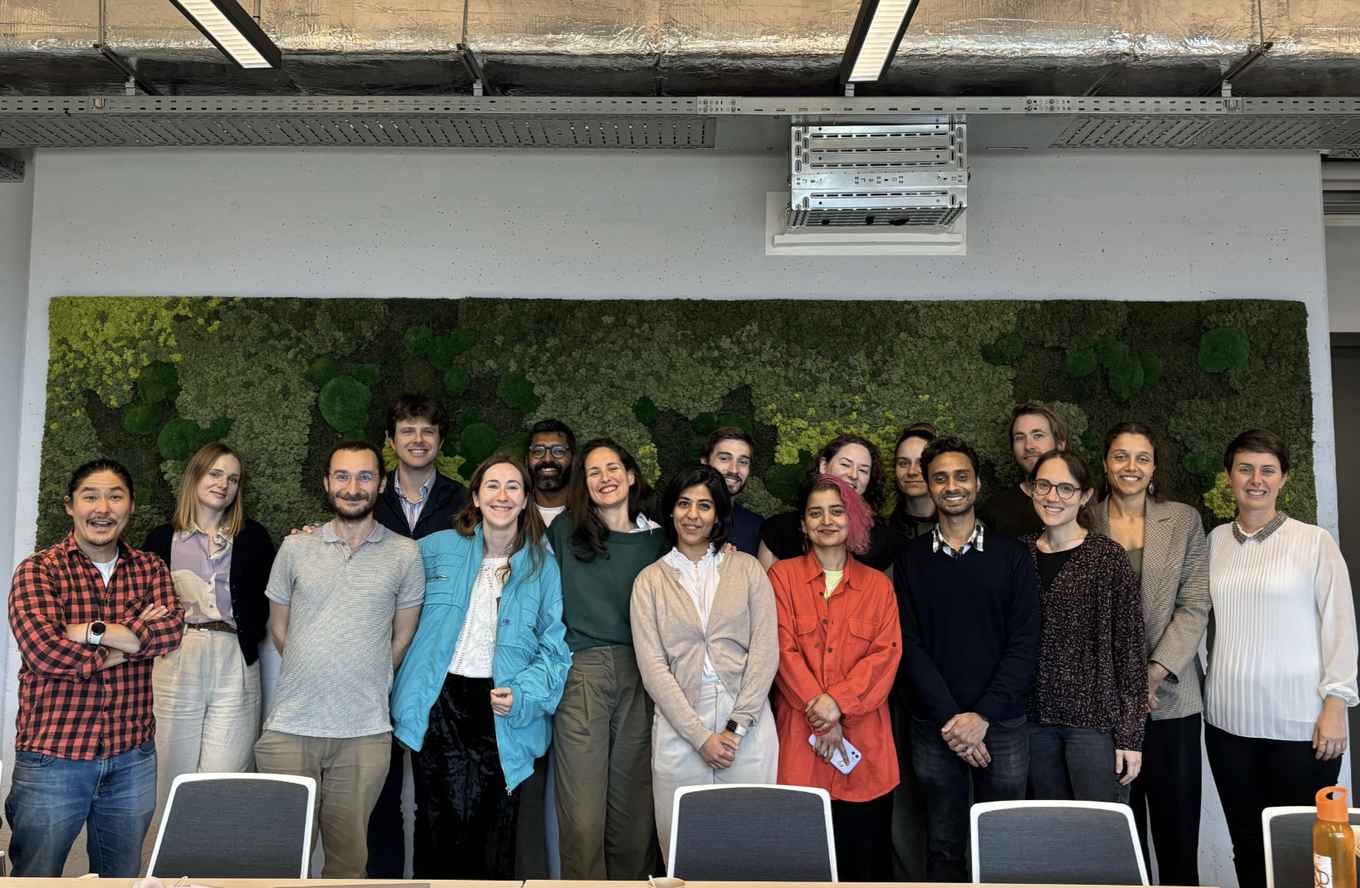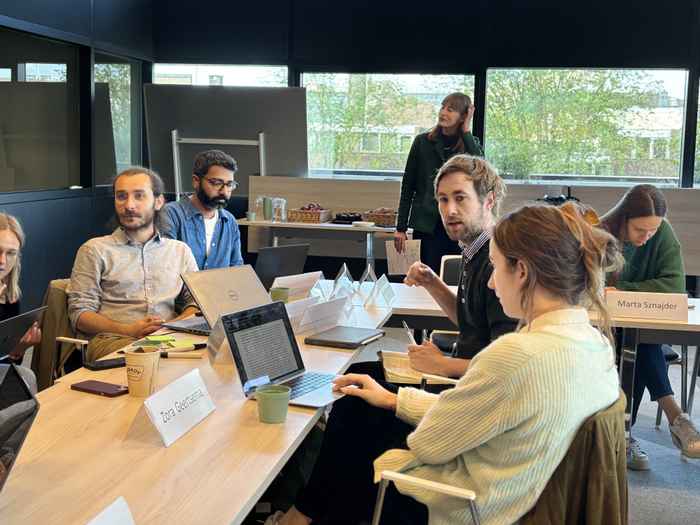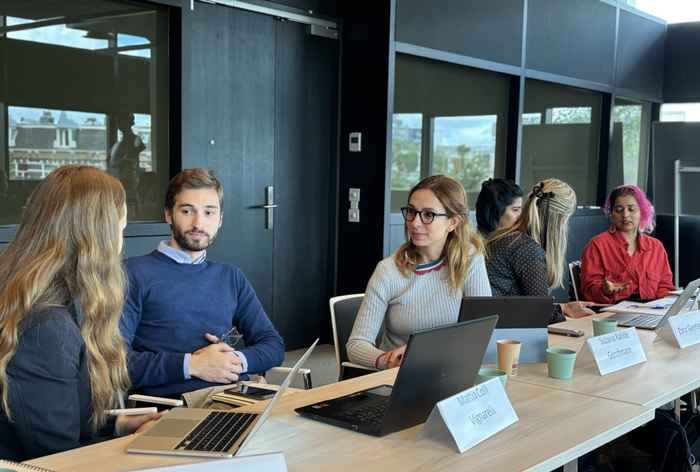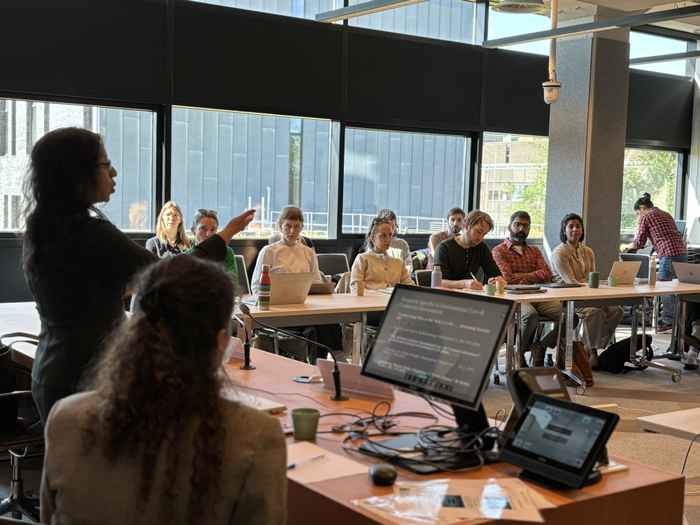SGEL Summer School 2024
4th edition
17 June 2024

We designed the Summer School to support a new generation of scholars in developing and strengthening their ideas in collaboration with more established scholars, and to help them navigate academic spaces through formal and informal forms of mentoring.
It is a critical, global, inclusive environment, focusing on cross-learning, where participants are comfortable with ambitious interdisciplinary questions centering holistic and structural analyses of legal frameworks connecting different areas of law.
For its fourth edition, the Summer School focused on collective critical work bridging critical theory and transformative reforms, and on collective critical work.
The school featured thematic sessions and group work on law and global political economy, on the crises of social reproduction, on ethnographic methodologies, on corporate power, on global sustainable finance, a reading group on the meaning of 'non-reformist reforms' (see Akbar, 2024), a roundtable on technology and transformative possibilities for the global economy, a session with a professional coach (Carol Kiriakos) on writing as an embodied practice, and a career development session on publishing in top international legal journals- among others.
It gathered emerging scholars from India, Brazil, Poland and Italy - among others - working on family law, international investment and competition law, property law and sustainable finance in relation to ecological and social breakdowns.



Thank you to our colleagues Grietje Baars (City University of London), Corinne Blalock (Yale - LPE) and Kish Parella (Washington and Lee School of Law).
Thank you to all the TEGL colleagues Mark Kawakami, Nicky Touw, Tim Lindgren, Giacomo Tagiuri, Johanna Lorenzo, Laura Mai, Simone van de Wetering, Nik de Boer, Kanad Bagchi, Eduardo Arenas Catalán, Ingo Venzke, Vladimir Bogoeski, Candida Leone, Andrea Leiter and Chantal Mak who took the time to convene sessions and facilitate writing workshops.
The Summer School is made possible thanks to the funding by the Transformative Effects of Globalization on Law research project, financed by the Dutch Ministry of Education. It is also co-funded by the Erasmus Plus Programme of the EU.